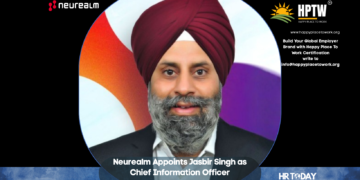Once upon a time, there was a King. King was brave, intelligent, popular and had all the qualities of a perfect King. A few months after becoming King, he got married and was living happily. He had everything except his own child. King initially did not give too much importance to the issue. As time passed by, people close to King told him about the importance of his own child. King, too, realized that succession planning is very important for long-term sustainability. King started spending more time with the Queen, and the Queen became pregnant.
The king was happy and nervous. He wanted perfection in everything. Time passed quickly, and there came the time of delivery. The queen developed a few complications. The king ordered to find the best doctor in the entire kingdom. The doctor was presented to the King. The king told the Doctor that if something happened to the Queen or Child, the Doctor would be given a death sentence.
Finally came the moment of truth. Queen was going through unbearable pain to give birth to the future of the kingdom. The doctor was under tremendous pressure to make sure that the delivery was smooth in order to save his own life.
“Queen and Doctor put more than their 100%, and Prince was born.”
Hearing that, a Maid went running to the king to tell him the good news.
King was thrilled to hear the news. King took out his golden necklace and rewarded the maid.
All the pain, effort and pressure were managed by the Queen and the Doctor.
However, when the task was delivered, the Maid was rewarded, even though her contribution was nil in the process except for breaking the news to the King.
Does this sound familiar in the organisational context, especially during Performance Management Cycles??
April to June is the time for performance appraisal. Every employee thinks (some extrovert type “Talk” and most introvert type “Think”) about it in these three months until the process is over. And, after three months, when the process is over, 20-25% celebrate because they got the best rating, and the remaining 75% sulk because they think their rating is lower than what they thought it should be and feel “Cheated”!!
Most employees start thinking and imagining about all the adjectives, bias, Politics, Victimization, Halo effect, Horn effect, Spillover, Recency, etc etc, about their manager, HR and the organization.
Poor managers, HR, and the organization have the best possible intentions for the employees. After all, an organization can grow only when employees perform and are happy.
All stakeholders, Employees, Managers and Organizations have the right intention for each other; still, most research reflects the different stories,
1. Productivity across the company goes down during PMS time
2. More employees are demotivated than motivated!
3. Attrition post appraisal is higher than other months (highest in Pharma, Retail, Telecom and IT companies)
Business environment, Technology, workforce demographics, Culture, Workplace environment, Career orientation and aspiration, and outlook towards life of the employees have changed and are distinctly different from what they used to be ten years back. Most appraisal systems are not completely irrelevant, but surely they need a much-needed change. Here are a few thoughts which can make the appraisal system more relevant,
- Focus on whole employee, not just performance and potential: Physical, emotional and mental well-being are, unfortunately, are bigger problem than ever, but play significant role in performance and productivity.
- Know and assess what matters to employees: A large Middle Eastern technology company recently conducted a study on what motivates employees, looking at combinations of more than 100 variables, including compensation and benefits, location, team size, tenure and performance rating. The company found that meaning—seeing purpose and value in work—was the single most important factor, accounting for 50 per cent of all movement in the motivation score. It wasn’t compensation. This may be different for each company, and hence, it is critical to know what motivates employees first and focus on those during assessment.
- Managers Serve the employees: In most companies, employees (line people) are more important than managers. We need to invert, understand, and include that “managers serve the employees.”
- Use of technology & Artificial Intelligence (AI) in Performance Management: AI to draw out themes from large amounts of qualitative data being gathered from feedback, goals and conversations. This can be used to coach employees and managers in real-time based on the feedback being received, and perhaps even predict future high performers based on data and patterns.
- Creating Employee Experience through Personalization: Think and invest in creating a personalized employee experience like companies do for customers. A one-size-fits-all management approach can’t bring out the best in employees because, like each customer, every employee is different.
- Keep compensation out of the process: To pay Ram a higher percentage increment than Shyam, the manager must rate Ram as exceeding expectations and ensure that Shyam meets expectations. That kind of reverse engineering of ratings often plays out over several performance cycles and leads to cynical outcomes —“last year, I looked out for you; this year, Shyam, you will have to take a hit for the team”. Research by Nobel laureate Daniel Kahneman suggests that employees may worry excessively about the pay implications of even small differences in ratings, so the fear of potential losses, however small, should influence behaviour twice as much as potential gains do. Offer a competitive base salary and peg bonuses to the company’s overall performance and special rewards, including discretionary pay, to truly outstanding performers. Companies can remove a major driver of anxiety for the majority of employees.
- Finally, Keep Things Simple. Don’t let feature creep make these too hard and time-consuming to use. An investment of thousands of man-hours across the company may not be relevant to business competitiveness anymore.
Today more than 85% of stock market capitalization is intellectual property, brand, services, and software so every person and every hour matters. Ultimately, organizations will not just produce positive business outcomes; by helping their employees realize their best selves but they will create a more positive impact for customers, managers, investors, and for the world at large.













